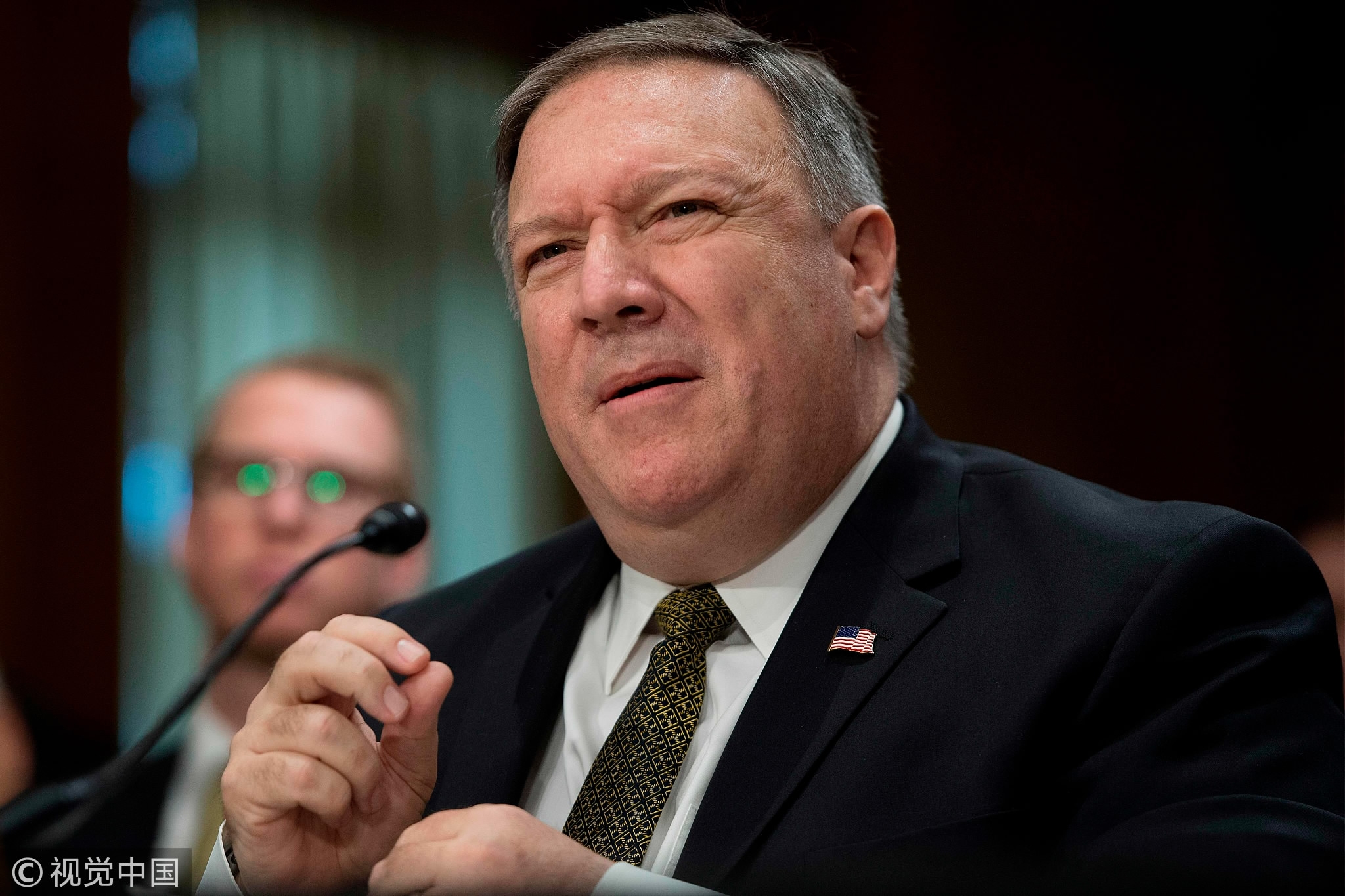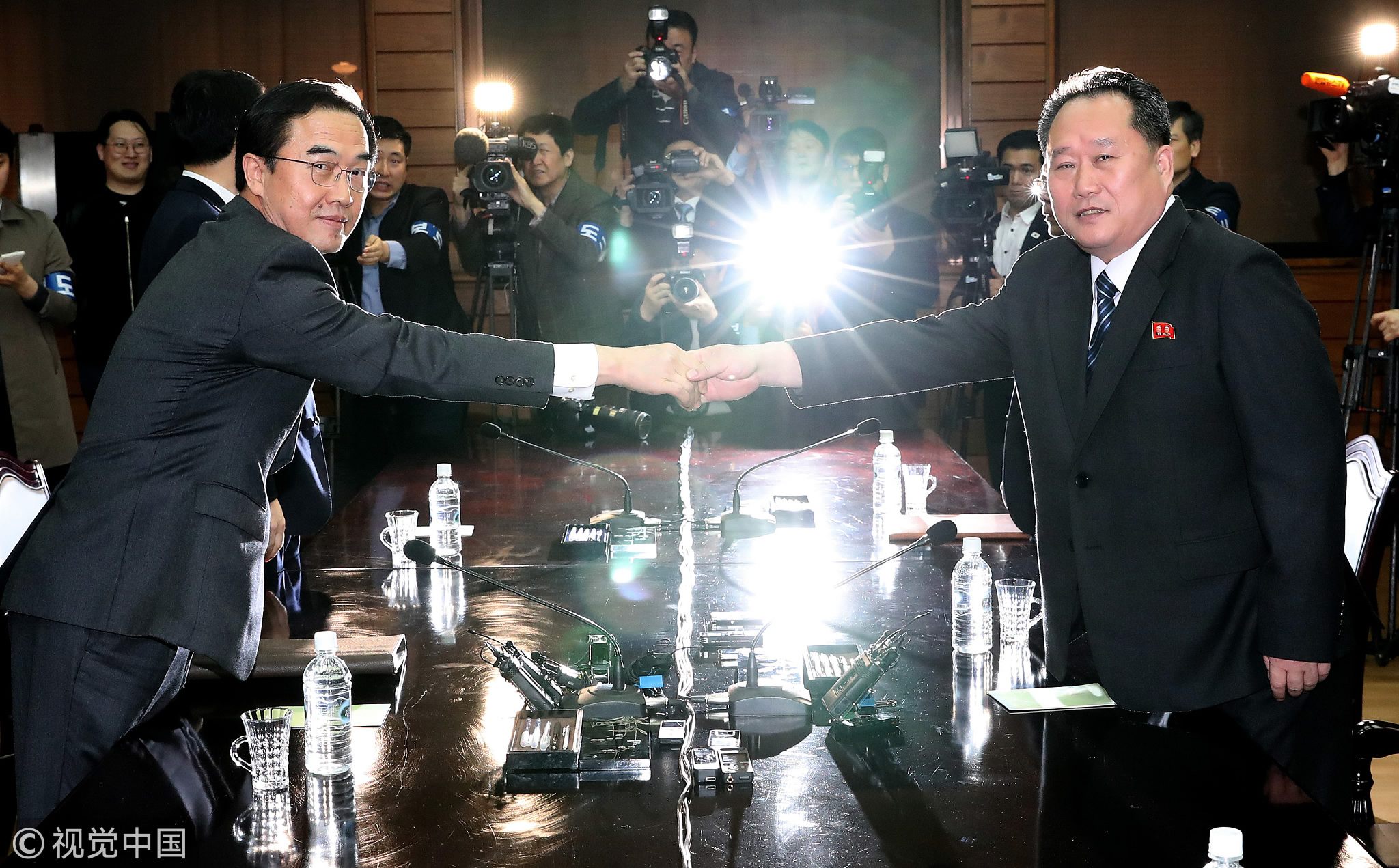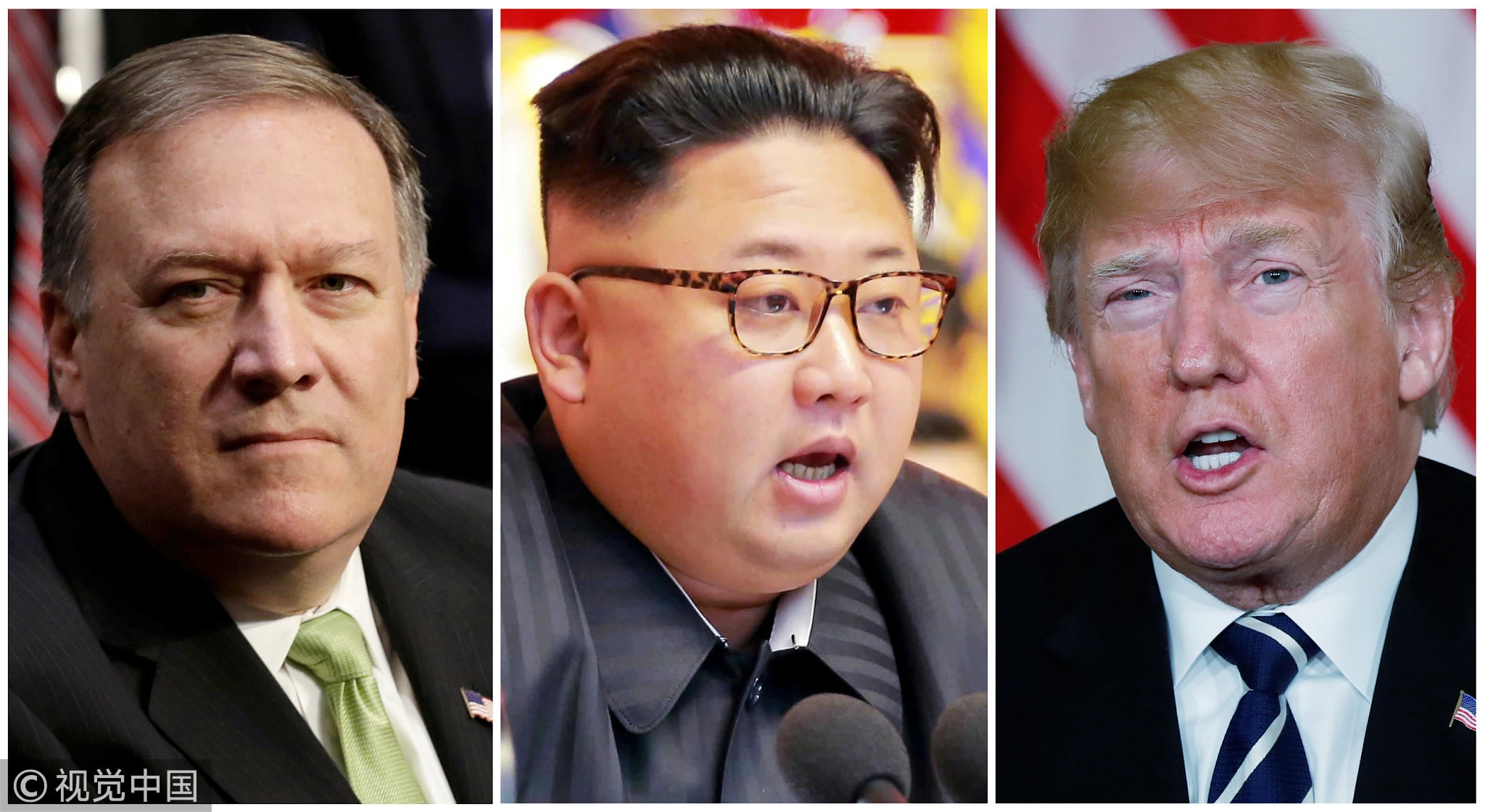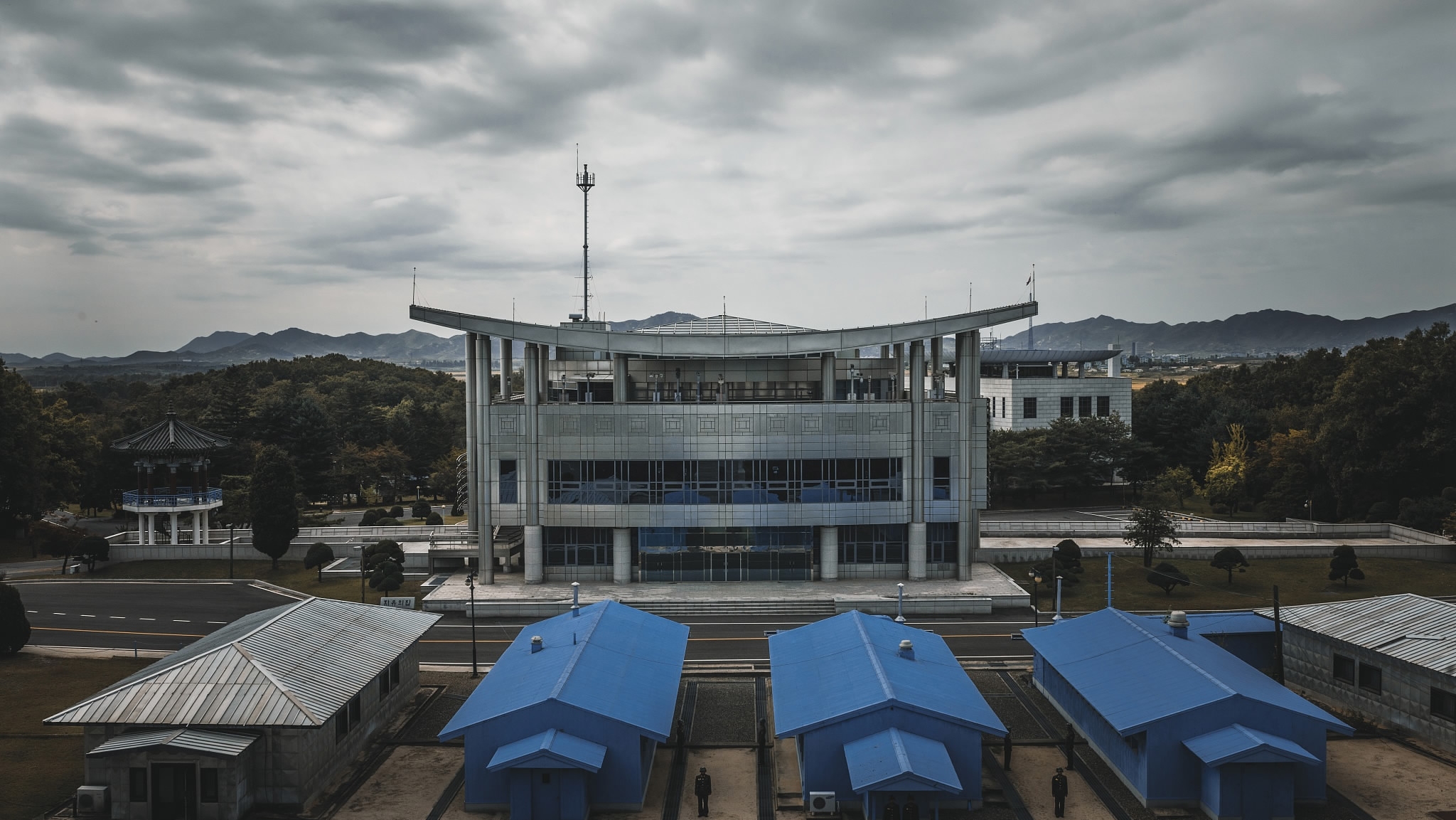The Republic of Korea (ROK) is seeking to end an armistice left by the 1950-53 Korean War and build permanent peace on the Korean Peninsula, Yonhap reported on Wednesday citing Seoul's unification ministry.
Chung Eui-yong, director of ROK’s National Security Office, said the ROK and US are considering various ways to reward the Democratic People’s Republic of Korea (DPRK) following its potential denuclearization.
The ROK and the DPRK are currently preparing for an inter-Korean summit on April 27, with focus on formally ending the animosity since the Korean War (1950-1953).
"As one of the plans, we are looking at a possibility of shifting the Korean Peninsula's armistice to a peace regime," a high-ranking ROK presidential official told reporters when asked about the summit.
"We want to include discussions to end hostile acts between the South and North," the official said.

US Secretary of State nominee Mike Pompeo testifies before the Senate Foreign Relations Committee during his confirmation hearing on Capitol Hill in Washington, DC, April 12, 2018. /VCG Photo
US Secretary of State nominee Mike Pompeo testifies before the Senate Foreign Relations Committee during his confirmation hearing on Capitol Hill in Washington, DC, April 12, 2018. /VCG Photo
US Secretary of State nominee and CIA Director Mike Pompeo became the most senior US official to have met DPRK leader Kim Jong Un, when Pompeo visited Pyongyang at the end of March to discuss a planned summit with US President Donald Trump.
Ties improved
Discussions between the US and the DPRK, as well as the DPRK and the ROK, would have been unthinkable at the end of last year, after months of escalating tension, and fear of war, over DPRK's nuclear and missile programs.

Inter-Korean high-level talks on summit ROK's Unification Minister Cho Myoung-gyon (L) shakes hands with Ri Son Gwon, head of DPRK's agency in charge of affairs with the South, at the start of their talks at the truce village of Panmunjom, March 29, 2018. The two officials are the chief delegates to inter-Korean high-level talks that will arrange details for a summit scheduled for late April. /VCG Photo
Inter-Korean high-level talks on summit ROK's Unification Minister Cho Myoung-gyon (L) shakes hands with Ri Son Gwon, head of DPRK's agency in charge of affairs with the South, at the start of their talks at the truce village of Panmunjom, March 29, 2018. The two officials are the chief delegates to inter-Korean high-level talks that will arrange details for a summit scheduled for late April. /VCG Photo
The climate started to change when Kim Jong Un declared in a New Year's speech that his country was "a peace-loving and responsible nuclear power,” and called for lower military tension and improved ties with the ROK.
He also said he was considering sending a delegation to the Winter Olympics in ROK in February.
A visit by a high-level DPRK delegation to the Olympics began a succession of steps to improve ties.
War not over
The Korean Peninsula remains technically in a state of war as the 1950-53 Korean War ended in armistice, not a peace treaty.
Trump said on Tuesday that he backed efforts between the DPRK and the ROK to try to end the state of war that has existed between the two countries for so long.

CIA Director Mike Pompeo (L) , DPRK leader Kim Jong Un (C), and US President Donald Trump (R) /VCG Photo
CIA Director Mike Pompeo (L) , DPRK leader Kim Jong Un (C), and US President Donald Trump (R) /VCG Photo
"People don’t realize the Korean War has not ended," Trump told reporters.
"It’s going on right now. And they are discussing an end to the war. Subject to a deal, they have my blessing and they do have my blessing to discuss that."
Trump said he believed there was a lot of goodwill in the diplomatic push with the DPRK, but added the US-DPRK summit – first proposed in March, and which the president said could take place in late May or early June – may not happen.
If the summit did not happen, the United States and its allies would maintain pressure on Pyongyang through sanctions, he said.
Nevertheless, Pompeo's conversations in the DPRK had fueled Trump’s belief that productive negotiations on the country's nuclear and ballistic missile programs were possible, but far from guaranteed, according to a US senior official briefed on the trip.
The visit, a second US official said, was arranged by ROK intelligence chief Suh Hoon with his DPRK counterpart, Kim Yong Chol, and was intended to assess whether Kim was prepared to hold serious talks.
ROK officials declined to comment on Pompeo's visit.
(With input from Xinhua and Reuters)





